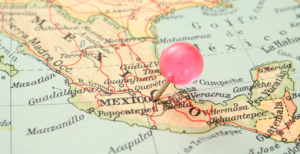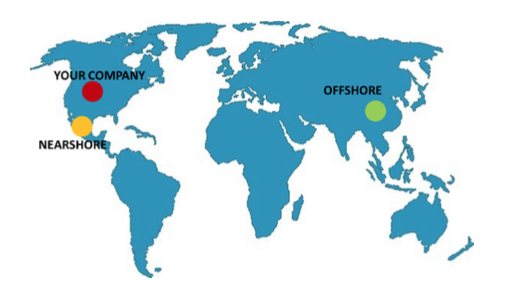Hace unos días que el INEGI confirmó que la economía del país se había contraído por primera vez en una década, algo que puede poner en riesgo a las PyMEs
Desde hace ya mucho tiempo que se sabe que el panorama económico del país no es lo que se calificaría como prometedor. Fenómenos internacionales como el coronavirus ya llevan más de una semana amenazando las finanzas de México. Y en días anteriores, el INEGI confirmó que el Producto Interno Bruto (PIB) de la República se contrajo durante 2019, por primera vez desde 2009. Esto es particularmente duro para las Pequeñas y Medianas Empresas (PyMEs).
Más allá de este fenómeno económico, el panorama de las PyMEs siempre ha sido complejo. De acuerdo con El Universal, enfrentan un relativo abandono de las instituciones de gobierno. En datos de Grupo Financiero Base, les cuesta mucho implementar tecnología innovadora. Y según Imagen, también existe una clara falta de productos y soluciones financieras. En este entorno, ¿cómo pueden crecer durante el 2020? Rubik Ventures propone tres soluciones:
Todavía hoy en día son muchos los negocios de menor tamaño que no tienen buenas prácticas de gestión y organización. Ya sea por falta de experiencia o por otra cosa, las finanzas y flujos de trabajo de muchas PyMEs no están optimizados. Además, no hay claridad en los posibles errores que están cometiendo sus colaboradores. Y como no existe un monitoreo constante, tampoco hay iniciativas para la mejora de sus organizaciones comerciales en el corto plazo.
Las PyMEs podrían enfrentar el difícil panorama económico de México con mejores estrategias de gestión. De esta forma, no solo pueden reducir los gastos que enfrentan, pues la eficiencia suele traducirse casi de inmediato en ahorros pequeños, pero acumulables, en su negocio. A la vez, también pueden aspirar a mejorar el servicio que le proporcionan a los clientes. De esta forma, es posible obtener un valor agregado que las haga más atractivas frente a sus rivales.
Seguir invirtiendo en crecimiento y expansión
En una época de incertidumbre económica, podría parecer contraintuitivo que las PyMEs se dediquen a expandir sus capacidades. Pero lo cierto es que son las empresas que se atreven a apostar en los momentos más difíciles aquellas que pueden ganar el mercado. La lógica es muy simple. En tiempos difíciles, casi todos los agentes toman un enfoque más discreto. Para quienes se atreven a hacerse notar, significa que hay un mercado que nadie está explotando.
Además, las PyMEs tienen mucho que ganar de un enfoque mucho más internacional. Muchas de estas marcas todavía no forman parte de cadenas globales de valor. Con una inversión y la estrategia adecuada, estas compañías no solo podrían beneficiarse de mejores proveedores o clientes en más mercados. También pueden obtener un valor agregado importante. Al final, no todos los rivales pueden presumir tener una audiencia y actividades de calibre internacional.
Poner énfasis en un buen ambiente laboral dentro de las PyMEs
Tal y como sucede en los grandes corporativos, las empresas de menor tamaño deben su éxito a sus colaboradores. De hecho, el rol de los individuos es mucho más importante en las compañías más reducidas. Esto, porque cada persona tiene un rol fundamental en el éxito a corto plazo de la organización. En este sentido, es crucial que estos profesionales estén lo más cómodos posible. Lo anterior significa que las PyMEs deben invertir en ambiente laboral.
La mejor guía para lograrlo es a través del cumplimiento de la NOM 035. Esta legislación fue diseñada para combatir el estrés laboral en México (que ocupa el lugar uno en incidencia en todo el mundo). Entre los requisitos que están contemplados en este marco legal, se cuenta la flexibilidad laboral, como poder realizar ciertas actividades desde casa en un esquema home office. También se pueden crear sistemas para la disposición de nómina en más formatos.

Fuente: Merca2.0.com








